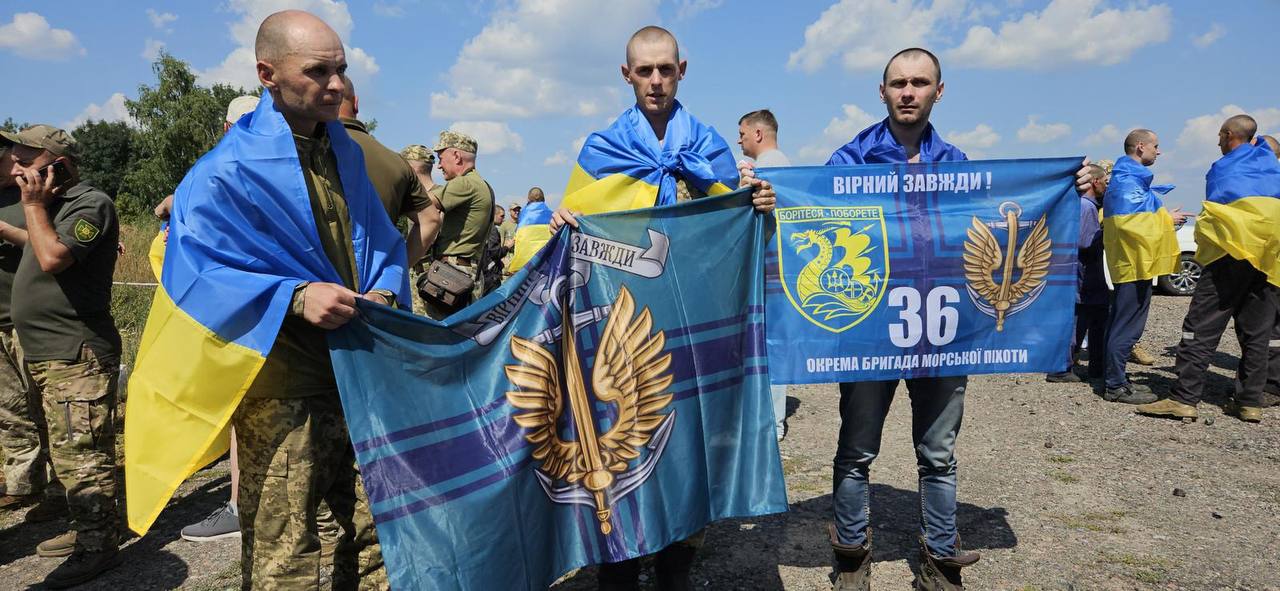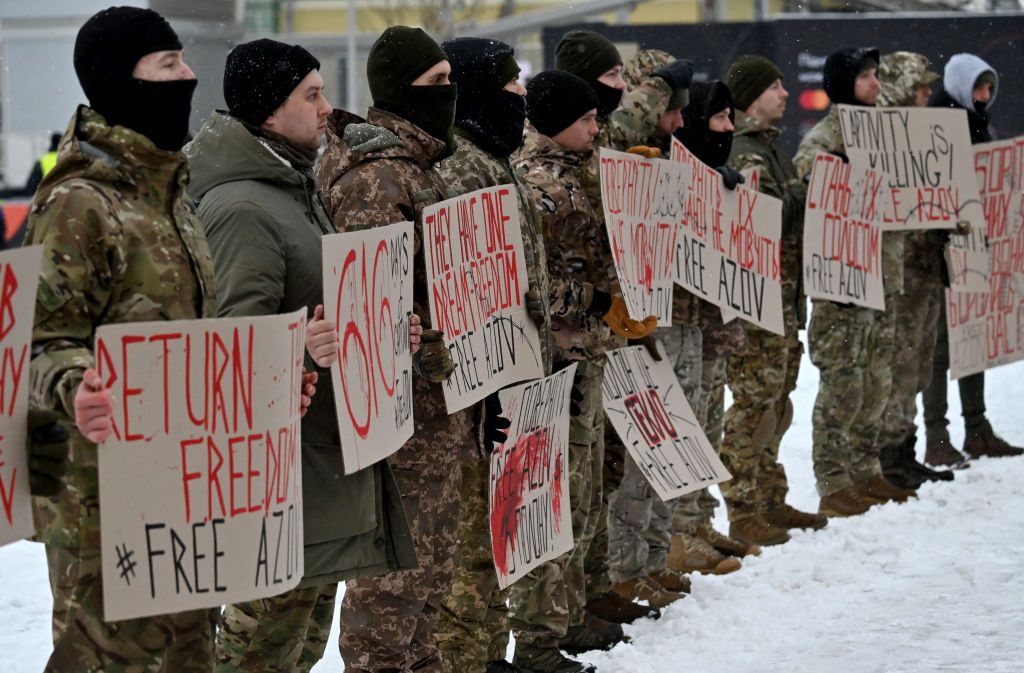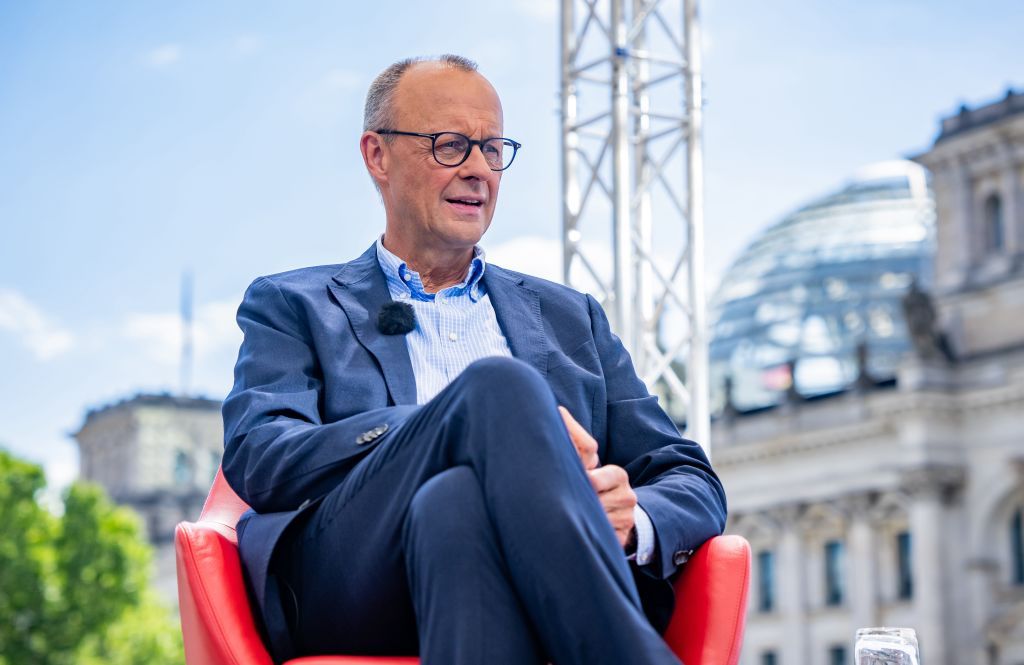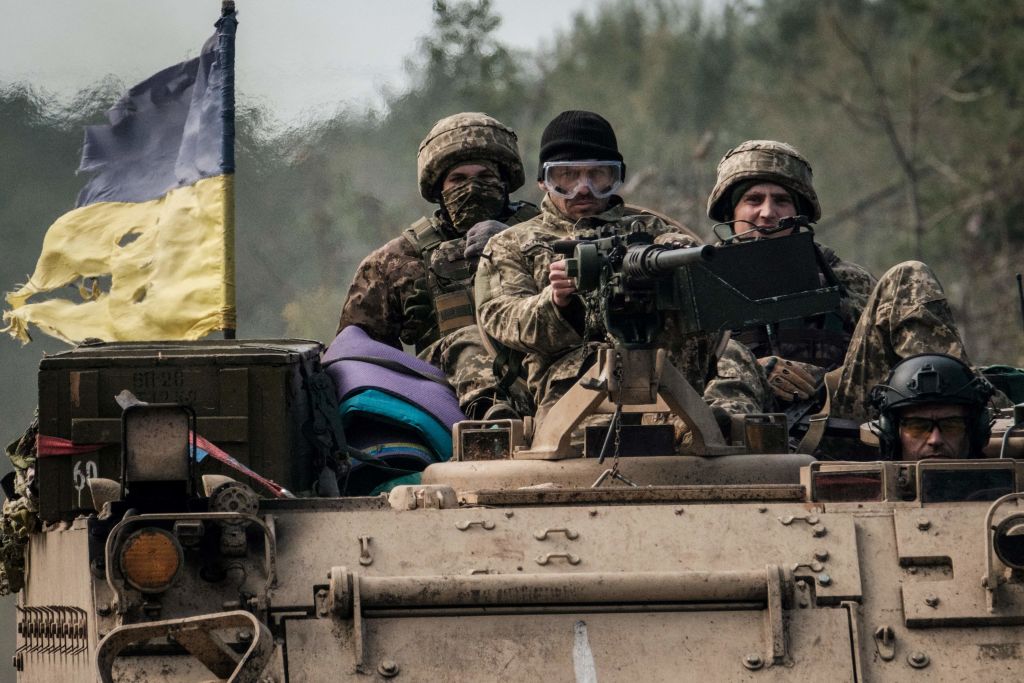Kyiv brings back 95 prisoners of war from Russian captivity

Important developments on July 17:
- 95 Ukrainian prisoners of war released from Russian captivity
- For security reasons, the Russian authorities restrict entry into border areas of Belgorod Oblast
- Reuters: Germany halves military aid to Ukraine
- Ukraine reports 42,000 missing citizens
- Ukraine announces final number of men who updated mobilization data
Another 95 Ukrainian defenders, including members of the armed forces, the National Guard and the border guard, have been returned home, President Volodymyr Zelenskyy announced on July 17.
“Our thanks go to our exchange team and the United Arab Emirates (UAE) for arranging their release,” Zelensky said, according to his Telegram channel.
“As difficult as it may be, we are looking for anyone who may still be in captivity.”
The Russian Defense Ministry claimed that the release was part of a prisoner exchange, as 95 Russian prisoners were also released. The Ukrainian headquarters for the coordination of prisoners of war (POW) later confirmed the exchange.
Among the released prisoners of war were 49 members of the armed forces, including one who was voluntarily deployed by helicopter to Azovstal in Mariupol in 2022 to join the defenders during the Russian siege.
Among others, 21 members of the National Guard, ten sailors, seven members of the territorial defense and five border guards were released.
Bloomberg reported today on an impending prisoner exchange brokered by the UAE, adding that this would bring the total number of prisoners exchanged through the Gulf state to 1,400.
Arab countries such as the United Arab Emirates and Saudi Arabia have repeatedly taken on the role of mediators in prisoner exchanges between Ukraine and Russia.
The last exchange took place on June 25, when Ukraine returned 90 prisoners from Russian captivity.
Since the start of the large-scale invasion, 3,405 Ukrainian prisoners have been brought home safely by July 17, Ombudsman Dmytro Lubinets said on Telegram.
The Counteroffensive: Insights into Ukraine’s POW negotiations with Russia
Editor’s note: This article was published in the twice-weekly newsletter The Counteroffensive with Tim Mak on May 12, 2024, and is republished with permission from the Kyiv Independent. To subscribe to The Counteroffensive, click here. Prisoner negotiations between Ukraine and Russia are underway…

Citing security concerns, Russian authorities restrict entry to border areas of Belgorod Oblast
Authorities in Russia’s Belgorod Oblast have imposed restrictions on entry to 14 towns and villages on the Ukrainian border due to an “extremely difficult operational situation,” Governor Vyacheslav Gladkov said on July 16.
In recent months, there have been increasing reports of missile or drone attacks on Belgorod Oblast, which borders the Ukrainian oblasts of Sumy, Kharkiv and Luhansk.
In addition, there have been repeated cases of pro-Ukrainian militias consisting of Russian citizens carrying out cross-border raids into Belgorod Oblast and other border areas.
Gladkov said increased security measures would be taken in the affected areas, including suspending public transport and setting up military checkpoints.
Only adult men in protective clothing and accompanied by soldiers and local officials will be allowed to enter the building, the governor said.
In response to ongoing attacks and raids on the border, Russian President Vladimir Putin proposed creating a “demilitarized” or “sanitary zone” in Ukraine that would put Russian territory and illegally occupied parts of Ukraine out of the reach of Ukrainian weapons.
The start of the renewed Russian offensive against Kharkiv Oblast in May 2024 was considered part of the goal of establishing such a “sanitary zone”.
The offensive came to a halt after only about two weeks when Ukrainian forces launched a counterattack near the border town of Vovchansk.
Kremlin spokesman Dmitry Peskov downplayed both the lack of success of the Kharkiv offensive and the introduction of increased security measures at the border on July 17, claiming that the operation to create a “sanitary zone” was still ongoing.
Germany to halve Ukraine military aid, Reuters reports
According to a draft budget for 2025 reported by Reuters on July 17, German military aid to Ukraine will be cut by half next year.
Berlin will provide Kyiv with around eight billion euros ($8.7 billion) this year, but in 2025 it will only be four billion euros ($4.35 billion).
The move comes amid growing concerns that a victory by Donald Trump in the upcoming US presidential election would lead to a drastic reduction in Washington’s support for Ukraine’s fight against Russian aggression.
According to Reuters, Berlin hopes that the losses can be offset by profits from frozen Russian assets.
Last month, G7 leaders finally agreed on a plan to provide Ukraine with a $50 billion loan by the end of the year, backed by accrued interest on $300 billion in frozen Russian assets.
The amount Ukraine hopes to receive by the end of the year before a possible return of Trump to the White House includes a commitment from the US and EU of $20 billion each, Kyodo News reported on July 17.
The remaining $10 billion will be covered by Japan, Canada and the UK. Ottawa had previously stated that it was prepared to cover $5 billion of the loan.
The nomination of Ohio Senator JD Vance as Trump’s vice presidential running mate this week has further increased concerns about future U.S. support for Ukraine.
Vance is one of the most vocal opponents of US aid to Ukraine and has a long record of statements that suggest a dramatic shift in White House policy under the current Biden administration.
German opposition leader calls on Berlin to send fighter jets to Kyiv
“I believe we should help Ukraine to at least restore sovereignty over its own airspace,” said CDU politician Friedrich Merz on July 14.

Ukraine lists 42,000 citizens as missing persons
According to a July 17 Ukrinform report, Ukraine has listed 42,000 citizens in its unified register of persons missing under special circumstances, an Interior Ministry official said.
The registry collects data on people who have disappeared due to war, occupation or natural or man-made disasters.
This figure underscores the humanitarian impact of Russia’s all-out war, which has resulted in deportations, kidnappings and a large number of military and civilian deaths in Ukraine.
“In total, the register has collected information on 51,000 people missing under special circumstances since its launch in May 2023,” said Dmytro Bohatiuk, head of the Interior Ministry’s missing persons department, adding that 42,000 people are currently listed in the register.
The latest figure represents a significant increase since April, when Ukraine’s chief ombudsman, Dmytro Lubinets, announced that nearly 37,000 Ukrainians were missing.
The ministry also has data on 7,000 people whose whereabouts have already been determined, including 3,000 former prisoners of war who are still alive and well, and 4,000 people killed, mostly soldiers, Bohatiuk said.
Ukraine only sporadically reports information on the number of people held captive by Russia. Last November, the authorities announced that 2,384 soldiers and civilians were still in Russian captivity, although there have been several prisoner exchanges since then.
This figure does not include the number of Ukrainian children forcibly deported to Russia, Belarus or the occupied territories, whose number exceeds 19,500.
Russian court sentences Ukrainian-Russian citizen to 26 years in prison for arson in recruitment offices
Since the beginning of the all-out war, more than 500 people have been arrested in Russia for vandalism or arson in recruitment offices.

Ukraine reveals final number of men who updated mobilization data
From May 18 to July 16, 4,690,496 men of military age updated their registration data by the July 17 deadline, the country’s Defense Ministry announced.
Ukraine has taken steps to update the legal framework for conscription and speed up mobilization this year. President Volodymyr Zelensky signed a new law on mobilization on April 16.
Under the law, all men of military age, with some exceptions, had to update their military documents within 60 days from May 18 at public service centers and enlistment offices or through the online application Rezerv+.
The deadline for updating the data expired on July 17, 2024.
“According to the results of the update, 4,690,496 soldiers have completed their service,” the Ukrainian Defense Ministry said in a post on Facebook.
Ukrainian conscripts who have not updated their data may face a fine of up to 25,000 HRK (almost 600 USD) or be put on the wanted list.
Fines are not imposed automatically, the General Staff explained. Under Ukrainian law, a fine is imposed within three months of the detection of a crime.
If a citizen does not pay the fine, the case can be transferred to the State Enforcement Service. The debtor’s property or accounts can then be seized, Iryna Harbuz, representative of the Central Legal Department of the General Staff, told Suspilne.
Men who have not updated their data and ignore the summons may be put on the wanted list, Deputy Defense Minister Kateryna Chernohorenko said in an interview with the YouTube channel YePytannya.
The mobilization is going “according to plan,” but there are not enough training opportunities, says Selenskyj
“As for educational opportunities, there are not enough of them. They are already being expanded,” said President Volodymyr Zelensky during a press conference in Kyiv.



